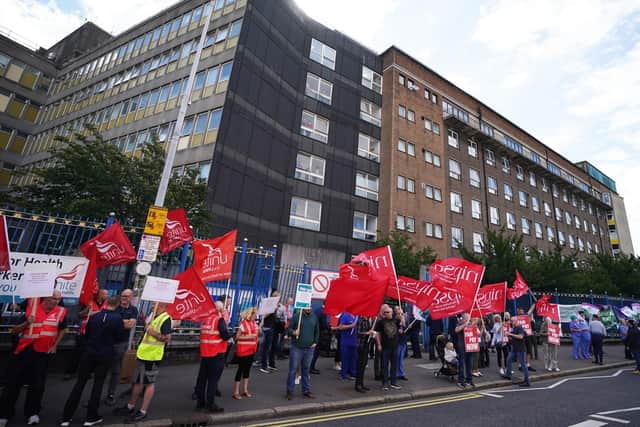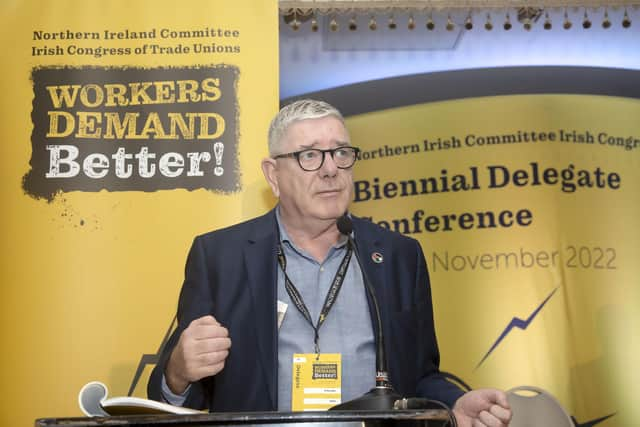Trade unions hold 'preliminary discussions' over link-up for 'days of action' across sectors in Northern Ireland
and live on Freeview channel 276
The possibility was discussed during a meeting of the Northern Ireland committee of the Irish Congress of Trade Unions (NIC-ICTU), an umbrella body that links most trade unions here.
This comes amid widespread industrial unrest fuelled by soaring inflation that has caused salaries and wages to become worth less in real terms.
Advertisement
Hide AdAdvertisement
Hide AdTeachers, health workers, postal workers, and staff in a range of other sectors have all voted in favour of strike action in recent months and remain engaged in industrial action.


Gerry Murphy, a teaching union official who was announced by ICTU as the umbrella body's "leading representative for the trade union movement in Northern Ireland" last month, confirmed that "preliminary discussions" have already taken place about a possible "day of action".
In Great Britain, it was reported by several national newspapers earlier this week that the Trade Union Congress (TUC) - an umbrella body bringing together most trade unions in England and Wales - is considering a "day of action" in early February in response to the government's proposals for legislation to legally enforce 'minimum service levels' during strikes in certain industries.
Mr Murphy said the February 1 proposals being considered by the TUC were discussed during a meeting of the NIC-ICTU on Wednesday.
Advertisement
Hide AdAdvertisement
Hide Ad"There was a long discussion about that, as you can imagine, after the we became aware of the news the TUC is planning to hold a day of action on February 1," he told the News Letter.


"We were talking about how we are going to proceed with the huge number of disputes that are currently underway here. In effect, the entire public service is in some form of dispute, or about to be in dispute with the government. We had some preliminary discussions around how we might better and more effectively co-ordinate our action, the industrial action.
"We also had a discussion with our colleagues who are taking action across the private sector, in industry."
The senior trade unionist continued: "That was a preliminary discussion. We intend to hold further discussions. The Finance and General Purposes Committee of the Irish Congress will meet early next week and we will be seeking to pull together either a co-ordinated day or days of action going forward.
Advertisement
Hide AdAdvertisement
Hide Ad"The difference between what's happening in England and what's happening here is that industrial matters are a devolved issue here, so that on the face of it the proposed laws announced by the government wouldn't apply here. That's not to say the situation might change if, for example, you got - for lack of a better term - full fat direct rule. But as things stand that wouldn't apply."
He added: "What we're talking about here is coordinating our actions more effectively in support of the claims which have been made by the health unions, education unions, and what looks likely to be a ballot in the civil service going forward. That's where we're at. There's an unprecedented level of industrial unrest.”